We asked Brookings experts to weigh in on the issues they want to see the Democratic presidential candidates discuss in the Iowa debate, and what positions they think will be the strongest given the current political moment. We heard from them about Iran and Middle East policy, infrastructure, war powers, and the power of the presidency overall.
Iran and the recent the U.S. strike that killed Quds Force commander Qasem Soleimani will loom large for the Democratic candidates participating in the debate in Iowa. It may be tempting for the candidates to use this issue primarily as an opportunity to criticize the current administration and issue vague appeals for a return to full U.S. compliance with the 2015 Iran nuclear deal. That would be a mistake; there are legitimate concerns, which Congress in its oversight role should pursue. But criticizing Trump alone won’t solve the very real challenges we face in the Middle East.
Contenders for the nation’s highest office should devote their limited time to articulating a broad vision for how the United States can advance our own interests in the Middle East while also pursuing peace and security for the people of the region itself. How will Democrats revive, repair, and extend an Iran nuclear agreement whose constraints are already mostly frayed? How will candidates help cultivate stable, representative, and accountable governance in arenas of conflict, such as Iraq and Afghanistan, while simultaneously drawing down American military presence there? Voters deserve to hear new ideas, not simply Trump-bashing, even if the latter is better for television ratings. – Suzanne Maloney
The temptation on Middle East policy will be familiar to the presidential candidates: Attack Trump for his recklessness on the grave matters of war. This makes political sense, and there are indeed many ills to speak of in Trump’s policy, but this temptation should be avoided. The real policy question is not how a Democratic president would have behaved differently, but how they will handle the world post-Trump, should they beat him. Like any president, Trump will leave behind him a mixed bag: with the blunders there are—always—advantages. In particular, a new president should take advantage of whatever leverage Trump has gained with Iran—even in his rudderless fashion—to advance U.S. interests. A Democratic president would want to show the world that he or she is a more serious, stable interlocutor, but also that he or she can be just as tough as Trump, minus the strategic myopia. Want the United States to enter a revised nuclear deal—we can talk, but what are you offering? Want sanction relief—it’s on the table, but not for nothing. It’s a difficult balance of politics and policy for primary voters, national voters, and the world stage. That’s the challenge Democrats face in Iowa. – Natan Sachs
Rebuilding America’s infrastructure is incredibly popular with voters across the political spectrum, but remains an unsolved problem. Most candidates have proposed large, bold infrastructure plans, but those plans often devolve into a checklist of funding increases for existing programs that spread large amounts of money across the myriad existing alphabet soup of agencies, coupled with small new programs aimed at high-level problems. The result is a failure to connect with voters in a way that conveys a new vision that will improve the average American’s life.
The candidate who can explain how his or her plan will address the real problems voters face (traffic jams, old schools, limited broadband, dirty water) has an opportunity to connect with voters in that uniquely presidential context. A successful candidate will speak to voters about a problem they face with a solution that will make life better. Infrastructure is the rare issue popular with the Democratic party base, independents, and most Republicans. After four years of the Trump administration turning infrastructure from a campaign promise to an internet meme of ineffective government, can any Democratic candidate seize the political and economic high ground? – Aaron Klein
Of the six candidates who will appear on the debate stage on Tuesday, half are current U.S. senators who may soon be asked to weigh in on the Senate floor on a measure seeking to limit President Trump’s authority to engage in military operations against Iran. They—along with the other candidates—should be asked not just about their position on intervention in Iran, but more generally about the circumstances under which the president should have to seek congressional authorization to use force. What role should Congress play in decision-making about military operations abroad, and what, if any, limits would they impose on their own authority if they were elected president? Asking about how aggressive they would be in using presidential power in the foreign policy context would also create space for similar queries about how the candidates plan to use executive power to advance their domestic policy goals in the face of frequent legislative gridlock that we expect to continue into 2021 and beyond. – Molly Reynolds
There are numerous issues that have been thrust to the forefront of the presidential campaign over the past few months. It is easy to talk about individual issues—Iran, impeachment, foreign influence of elections, war powers—but one successful path for a Democratic candidate on the debate stage in Iowa is to unite that conversation around a common theme. I agree with my colleague, Molly Reynolds, who notes that presidential power is a critically important issue in tonight’s debate. How a Democratic candidate, as president, will exercise the powers of his or her office, and just as important, how he or she would seek to limit their own power is critically important. Every candidate should focus significant attention on the scope and reach of the office, in order to understand how he or she wield power in that office. It extends both to foreign and domestic policy contexts (as Molly rightly notes). What’s more, after years of lamenting the behaviors of President Trump, Democratic candidates owe voters not simply an explanation of how they will be different from him, but how different their vision of the office will be. – John Hudak
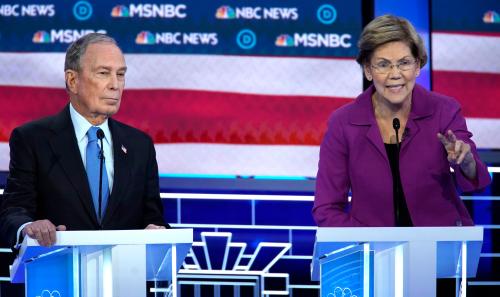
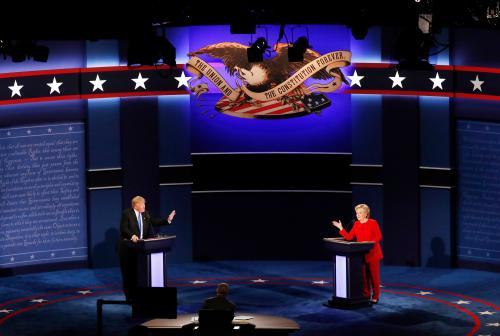
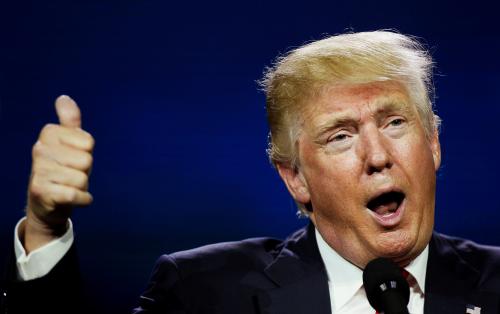
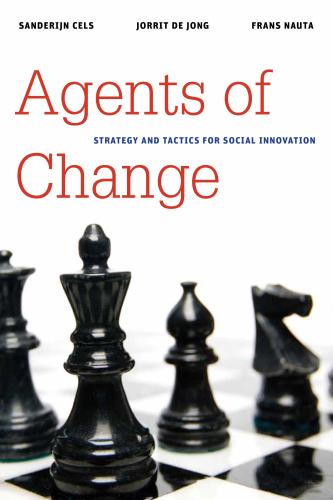
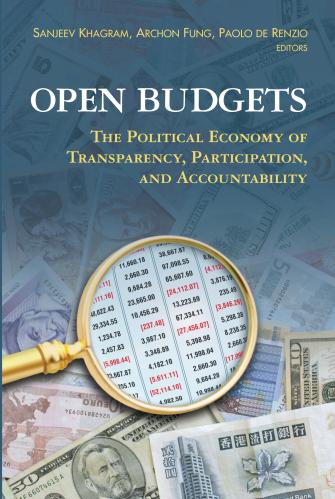
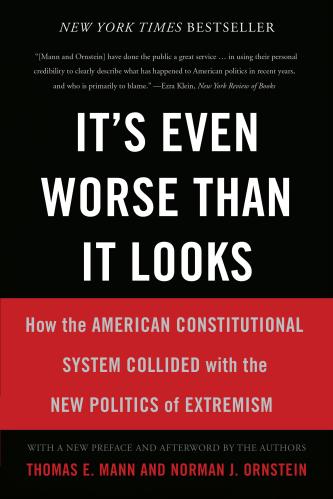

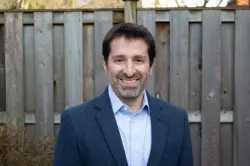






Commentary
Around the halls: What Brookings experts hope to hear in the Iowa debate
January 13, 2020